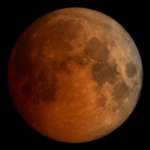On Monday, the world bid farewell to the talented saxophonist Mars Williams, known for his work with the Waitresses and later as a member of the psychedelic force. He passed away at the age of 68, as confirmed by his hometown newspaper, the Chicago Tribune. The cause of his death was reported as complications from cancer, which he had been battling since being diagnosed with a rare form a year ago.
During the influential period of 1980-83, Williams played a significant role as a saxophonist for the Waitresses, contributing to their albums with signature tracks like “Christmas Wrapping,” “Square Pegs,” and “I Know What Boys Like.” His saxophone-heavy sound, especially showcased in the title track of the “Bruiseology” LP, resonated deeply.
The split from the Waitresses occurred when the Psychedelic Furs invited Williams to fill the vacant saxophone position during their 1983 foreign tour, a role that expanded into an extended collaboration until 1989. Later, he reunited with the Furs in 2005, continuing his work until the band’s final tour last October.
While Williams’ work leaned towards the jazz side, he was particularly known for his experimental approach, often incorporating avant-garde styles in his performances.
Over his career, Williams played with numerous groups, with a remarkable 25-year tenure as a member of the Chicago-based Liquid Soul. The band earned a Grammy nomination in 2001 for Best Contemporary Jazz Record. Liquid Soul, blending hip-hop with bebop through muscular horns, tongue-twisting rappers, and turntable-infused rhythms, showcased Williams’ versatility.
Renowned figures in the downtown jazz scene, such as John Zorn, praised Williams for his contribution to an album he collaborated on with Hal Russell in 1984, saying he was “a true saxophonist – someone who enjoys playing the horn. His infectious enthusiasm is an essential part of his sound, and it comes through with every note he plays. Regardless of the situation, he plays joyful, romantic music.”
Williams’ extensive collaboration list includes live or recorded performances with artists like Billy Idol, The Killers, Power Station, Van Halen, Ministry, Bill Laswell, Charlie Hunter, among others.
His unique sensitivity was evident in his annual tradition of blending free jazz with the music of the great Albert Ayler in the “Albert Ayler Christmas Tour,” a tradition he continued until 2022.
Williams led or participated in various groups, including the NRG Ensemble, Trio No Maas, Chicago Reed Quartet, Mars Williams Music Book Orchestra, and Bonshakar. One of his most notable recent recordings featured a saxophone solo on a cover of Kesha’s “Children of the Revolution” for T. Rex’s tribute album produced by the late Hal Willner.
Born in 1955 in Elmhurst, Illinois, Williams initially played classical clarinet influenced by his father, a clarinetist, before switching to the saxophone. His early influences included Eric Dolphy, John Coltrane, and Charlie Parker, later expanding to incorporate the influence of Ornette Coleman.
Williams, known for his calm demeanor, actively supported struggling fellow musicians through benefit concerts. A show at Chicago’s Metro on a Saturday night was once designed as a benefit for his medical care but will now stand as a celebration of his life. The event hopes to feature longtime bandmates from Richard Butler, Zachary Alford, and Rich Good of the Psychedelic Furs, Dave Matthews Band’s Ike Relis, and Jeff Coffin of Liquid Soul in a musical tribute.
Table of Contents
ToggleMars Williams - Sister europe (sax solo):-
CONCLUSION :-
In conclusion, Mars Williams leaves behind a rich legacy as a versatile and influential saxophonist. His journey from the iconic sound of the Waitresses to the experimental realms of the Psychedelic Furs showcases his adaptability and enduring impact on the music scene. Williams’ unique approach, blending jazz with avant-garde styles, made him a standout figure, earning him recognition and respect across diverse musical genres.














